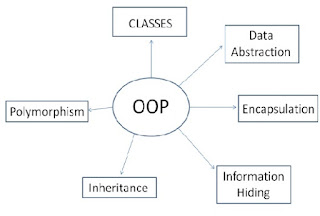What is OOP?
What are the benefits of using OOP language?
How it is used in any language?
There are a number of programming paradigms used in programming like imperative programming, declarative programming, structured programming, functional programming, procedural programming etc. OOP is the most widely used programming paradigm nowadays which defines the concept of classes and objects. The class is the template or form of the object, just like the map is the architecture of the house. It defines the blueprint of data representations and methods for manipulating and using that data, and an object is the real entity of the program which works exactly as defined in the class, as the house will be constructed exactly same as defined in map.

OOP defines the features like Inheritance, Polymorphism, and Encapsulation which are used to simplify code and reduce the complexity of the programs when they become large. When programs become large then it is very difficult to handle the complexity and modify the program so we use these features of OOP to manage and modify the programs efficiently.

Inheritance is the process by which one object acquires, extends the properties means data (variables) and methods of another class. It defines the concept of reusability which means one class can reuse the code (data and methods) of another class by extending it. A class which extends another class is called a child or derived class and a class which is extended by another class is called parent, super or base class. It is an important feature of OOP in making the hierarchical classification or top-down manner of classes which is not possible in Non-OOP paradigms

Polymorphism defines the concept of "one interface, different methods". It gives us the flexibility of writing efficient code by allowing us to make one general action interface or process which every method should follow. This helps reduce the complexity of the program by allowing the same interface to be used to specify the general class of action. It defines the rules and procedure for all methods.

Encapsulation is the mechanism of binding the code and the data it manipulates and prevents the outside interference or misuse. It defines the protection or security of code and data of some parts of the classes which we don't want to be accessed outside the class. In some programming languages like C++ and Java (which are OOP-based languages), access specifiers are used as the sections of the programs like private, public and protected. If we want some part of the class not to be accessed outside that class then we bind that part (data and code) in private.

Importance Of Object-Oriented Programming (OOP)
Comments
Post a Comment